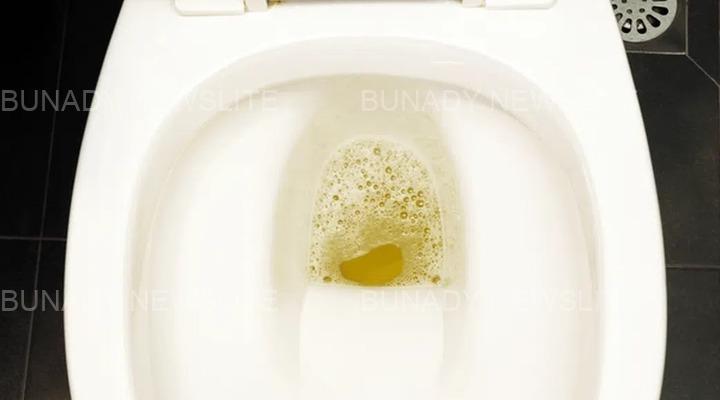Foamy urine can sometimes be a sign of an underlying health issue. Have you ever looked into the toilet and noticed that your urine appears foamy or bubbly?
While it might not seem like a big deal at first, foamy urine can sometimes be a sign of an underlying health issue. In this article, we’ll explore what causes foamy urine, when it’s considered normal, when it might signal a medical condition, and what treatments or steps you should take if it persists.
What Does Foamy Urine Mean?
Foamy urine simply means urine that looks bubbly or sudsy, almost like soap has been mixed in. It’s often noticed when using the toilet and can appear occasionally or frequently.
Common Causes of Foamy Urine
1. Fast Urination
One of the most common reasons for foamy urine is urinating with a strong stream. This can cause bubbles to form in the toilet bowl due to the force of the flow.
2. Dehydration
When you’re not drinking enough water, your urine becomes more concentrated. This concentrated urine may appear darker and foamy than usual.
3. Presence of Protein (Proteinuria)
Persistent foamy urine could indicate protein in the urine, a condition known as proteinuria. This is often a sign that your kidneys are not filtering properly.
Common causes of proteinuria include:
Kidney disease
Diabetes
High blood pressure
Autoimmune conditions like lupus
4. Urinary Tract Infections (UTIs)
Some UTIs can cause changes in the appearance of urine, including cloudiness or foaminess, often accompanied by a strong odor or burning sensation during urination.
5. Retrograde Ejaculation (in men)
In some men, a condition called retrograde ejaculation causes semen to travel backward into the bladder instead of out through the penis. This may cause the urine to appear foamy.
6. Chemicals in the Toilet
Sometimes, foam may simply be due to residues from cleaning products in the toilet bowl interacting with your urine.
Health-Related Causes of Foamy Urine
View pictures in App save up to 80% data.
If your foamy urine is persistent and accompanied by other symptoms, it could be a sign of a serious health condition, including:
Chronic Kidney Disease (CKD): Kidney damage causes protein to leak into the urine. This is a major warning sign and should be evaluated immediately.
Diabetes: Diabetes can damage blood vessels in the kidneys, leading to protein leakage and foaminess in urine.
High Blood Pressure: Over time, hypertension can harm kidney function, increasing the risk of proteinuria and foamy urine.
When to See a Doctor
You should consult a healthcare professional if:
The foamy urine persists for more than a few days
You notice swelling in your hands, feet, face, or abdomen
You have frequent urination, especially at night
Your urine is dark, has a foul odour, or appears cloudy
You’re experiencing other symptoms like fatigue, nausea, or shortness of breath
To determine the cause, your doctor may recommend:
Urinalysis to check for protein, blood, or infection
Blood tests to assess kidney function
Imaging tests (like an ultrasound) to check the kidney structure
24-hour urine collection for accurate protein measurement
Treatment depends on the underlying cause:
Dehydration – Drink more water and stay hydrated
Proteinuria/Kidney disease – Medications like ACE inhibitors or ARBS, lifestyle changes, manage diabetes or BP
UTI – Antibiotics prescribed by a doctor
Retrograde ejaculation – May be treated with medications or fertility support if needed
Diabetes/Hypertension – Manage with proper medication, diet, and exercise.
While occasional foamy urine may not be a cause for concern, persistent or frequent foaming, especially when paired with other symptoms, could point to an underlying health condition. It’s always better to check with your doctor if you’re unsure. Early detection and management can prevent serious complications, especially when it comes to kidney health.

